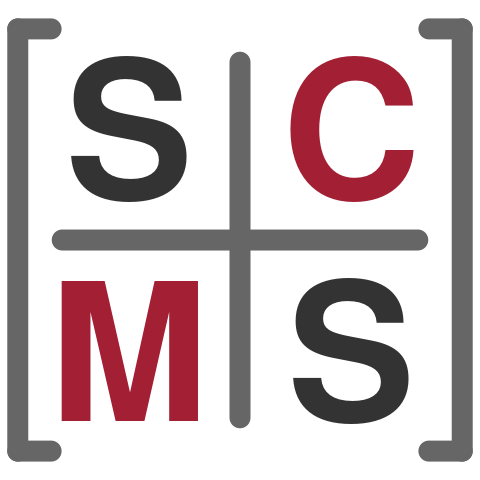
Mihir Arjunwadkar
mihir AT scms dot unipune dot ac dot in
Curriculum vitae • List of publications
And when I am forgotten, as I shall be,
And ⧼unto dust shall I return⧽, where no mention
Of me more must be heard of, say I taught ⧼here⧽ — William Shakespeare, Henry VIII, with ⧼modification⧽
I was a teacher (December 2003–July 2025) at SCMS-SPPU.
Here, I helped create academic programmes in modeling and simulation. The vision and development of these programmes is documented in detail here and here, respectively.
As the very first faculty to join (2003) the Centre for Modeling & Simulation, I have a unique experiential perspective on building from scratch an academic department committed to rigour, critical inquiry, and excellence.
Research
My broad research focus has been the development – or apt and meaningful use – of statistical and computational methodologies for data-intensive science. Predominantly, I have worked on problems in astrostatistics – radio astronomy, in particular. In the past, I have dabbled into computational biology – genomic sequence analysis in particular. Of late, I was involved in research related to a Pune-specific minerology problem. Here is my list of publications.
Many fields of knowledge – sciences in particular – have grown increasingly data-rich over the past few decades. The complexity of scientific questions being addressed has also increased rapidly. Indeed, 21st century science has been aptly described as "large data sets, complex questions" science by Bradley Efron. The use of statistics is inevitable because of the inherent uncertainties in data, whereas computation is unavoidable because of data size, methodological intricacies, and model complexity. What often helps address complex problems is fresh ways of looking at the problem and the available data, coupled with apt use of statistical and computational methodologies. My approach and outlook is imminently inter-/multi-disciplinary (where problems are domain-specific, and the methodologies are statistical and computational) and problem-centric (where methods are devised or adopted to suit the problem being addressed, and not vice versa).
Teaching
I have taught exclusively in the higher-education setting since 2004. Over the years, I have taught various courses to varied undergraduate, postgraduate, and research audiences consisting of engineers and scientists in various institutions in Pune. These include: probability theory, statistical inference, advanced data analysis, stochastic simulation / Monte Carlo methods, the R statistical computing/programming language, numerical computing, optimization and, of late, statistical/machine learning, and data visualization.
Over the years, my style of teaching has evolved from meticulously presenting content oneself to facilitating learning by understanding the audience (as well as possible, depending on its size). In my experience, students with some capability, sufficient interest and strong motivation will eventually overcome any handicaps in their prior background – with some push and help when required. As for strategies to help students engage with learning better, I have experimented with variety of formats and activities so as to nudge the students towards understanding, ability to put understanding into practice, self-reliance and excellence. As obvious as it may sound, in computing-focused courses, I try to emphasize the importance of hands-on self-driven explorations. I also try to emphasize the ability to learn-unlearn-relearn in case of programming languages and computing platforms/paradigms.
Here is some pedagogic material which may be useful to teachers/instructors:
- Course material for my course on Monte Carlo methods (aka stochastic simulation).
- Life After Death by R, a collection of problems illustrating the process of designing computational solutions & implementing them in R.
- Here is a contributed chapter on simulation methods in statistical mechanics in the graduate text Thermodynamics and Statistical Mechanics (Narosa Publishing House, 2008) by the late Professor P. V. Panat.
Outreach Highlights
- (2025-) Pune R UseR Group, a discussion group focused on the R statistical computing platform.
- (2023) A presentation (in Marathi) outlining personal outlook on what the newly-mandated courses on indian knowledge systems should (and should not) contain.
- (2022-) Pune Data Science Colloquia, a joint initiative by select people at SPPU SCMS, Statistics, IISER Data Science, and FLAME Computer Science; run sporadically.
- (2021) Chemistry in the Time of Lockdown, a delightful little book by Neehar (together with Surabhee & Mihir as editors): This book describes Neehar's (a class-8 student then) chemistry explorations during the 2020 lockdown months.
- (2020-21) Various contributions to the Indian Scientists' Response to COVID-19 initiative, including translation of educational material to Marathi, brain-storming and discussions about predictive models of COVID-19 spread, etc.
- (2016-20) Associate Editor, Resonance Journal of Science Education.
- (2012) Marathi translation of the comic book Transit of Venus–6th June 2012 by Niruj Mohan Ramanujam (author) and Reshma Barve (illustrator).





